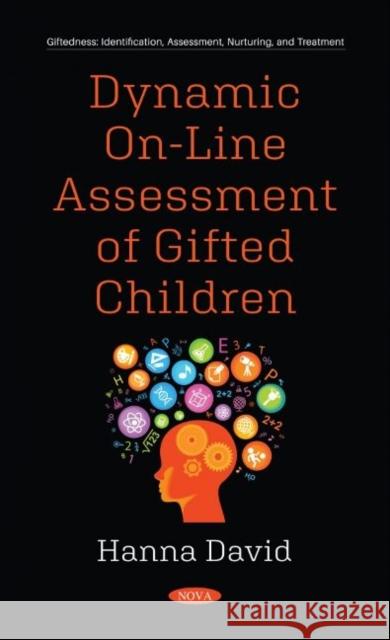Dynamic Assessment of Gifted Children » książka
Dynamic Assessment of Gifted Children
ISBN-13: 9781536188097
The book DYNAMIC ON-LINE ASSESSMENT OF GIFTED CHILDREN offers educators, counselors and parents of 3-16-year old gifted, talented, curious, and creative children and youths a new, original tool of assessing their interests and abilities. As this book has been published during the second wave of the covid19 pandemic, it concentrates on ways of assessment that can all function on-line as well. All offered activities have been tried both before "corona-time" started, when on-line therapy, let alone a on-line giftedness identification, was not practiced for children. The case studies presented in the book have all been written since March 2019, proved effective, enriching the knowledge of the counselor. They were also described as "easy", "nice", pleasant" and "interesting" by the children involved, and thus are recommended as unlike formal identification they put no pressure either on the child or on her or his parents. The first assessed child described is a 3-year old girl, who was identified as highly gifted in mathematics. The "game" played was "the geometrical shapes game", during which she was asked "what do you want me [the counselor] to paint?" and then: "what color do you want me to use?" During the "game" the child showed a wide knowledge in both 2- and 3-dimentional shapes, she always insisted on using the exact mathematical terms, and each time she approved on the result she was very happy. The next "games" descried were all word games. In "The associations game" the counselor writes a word and the child adds another one without thinking, and this goes on alternately for as long as the counselor decides, depending on the child's age, her or his attention span, level of hunger or thirst, etc. This "game" is suitable toddlers, kindergartners and first grader. The "ugly words game" is suitable especially for children with emotional and social problems. "Writing a story" is most suitable for kindergartners; it does not only reveal many important characteristics of the child but also enables them to express themselves freely, knowing that the story is imaginary. "Writing a story together" is the last suggestion for on-line assessment through a word game.











